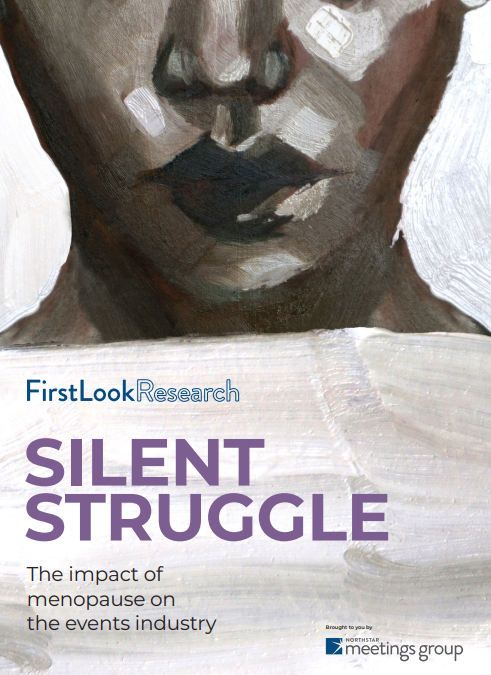Even though half the world’s population will experience menopause, the conversation around the process is alarmingly quiet. Especially when the lack of understanding and stigma around the issue is holding people back in the workplace. For the meetings and events industry, where 77 per cent of the workforce are female, the silence around menopause has been deafening but awareness is growing.
Northstar Meetings Group have been researching the impact of menopause on the events industry, and their report ‘Silent Struggle’ is out now.
Key takeaways from the report include:
- Menopause is steadily making its way into workplace conversations with just over half of respondents (51 per cent) saying they have heard menopause being discussed in the workplace
- 64 per cent of respondents said their organisation did not have a menopause workplace policy in place to support menopausal people, and 18 per cent were unsure whether such policies were in place.
- 88 per cent of respondents want to know more about menopause.
- 63 per cent said perimenopause or menopause had prevented them from doing their job to the best of their ability.
- 70 per cent said perimenopause or menopause has had a negative impact on their mental health.
- When it comes to taking time off work for menopause, 72 per cent said they gave another reason for their absence, most commonly citing a ‘stomach bug’.
It is clear that menopause is affecting performance and careers, and whilst there is growing awareness, the stigma around menopause persists. Workplaces lack policies to support menopausal people, but there is a desire for knowledge and a desire to do better. Creating an inclusive workplace for people experiencing menopause requires a multifaceted approach that combines education, policies, support systems, and a culture of empathy and understanding.
At EVCOM, we would like to ensure that as this conversation progresses, it takes into account inclusivity of trans and non-binary people. People who do not identify as women can still experience menopause. So we would like to advocate for the language used in these conversations to be reflective of that. As we have done in this article, we have simply replace the phrase ‘menopausal women’ with ‘menopausal people’. And we would encourage workplaces to take this into account when having these conversations and when updating their policies.
You can download the full report for free here.


